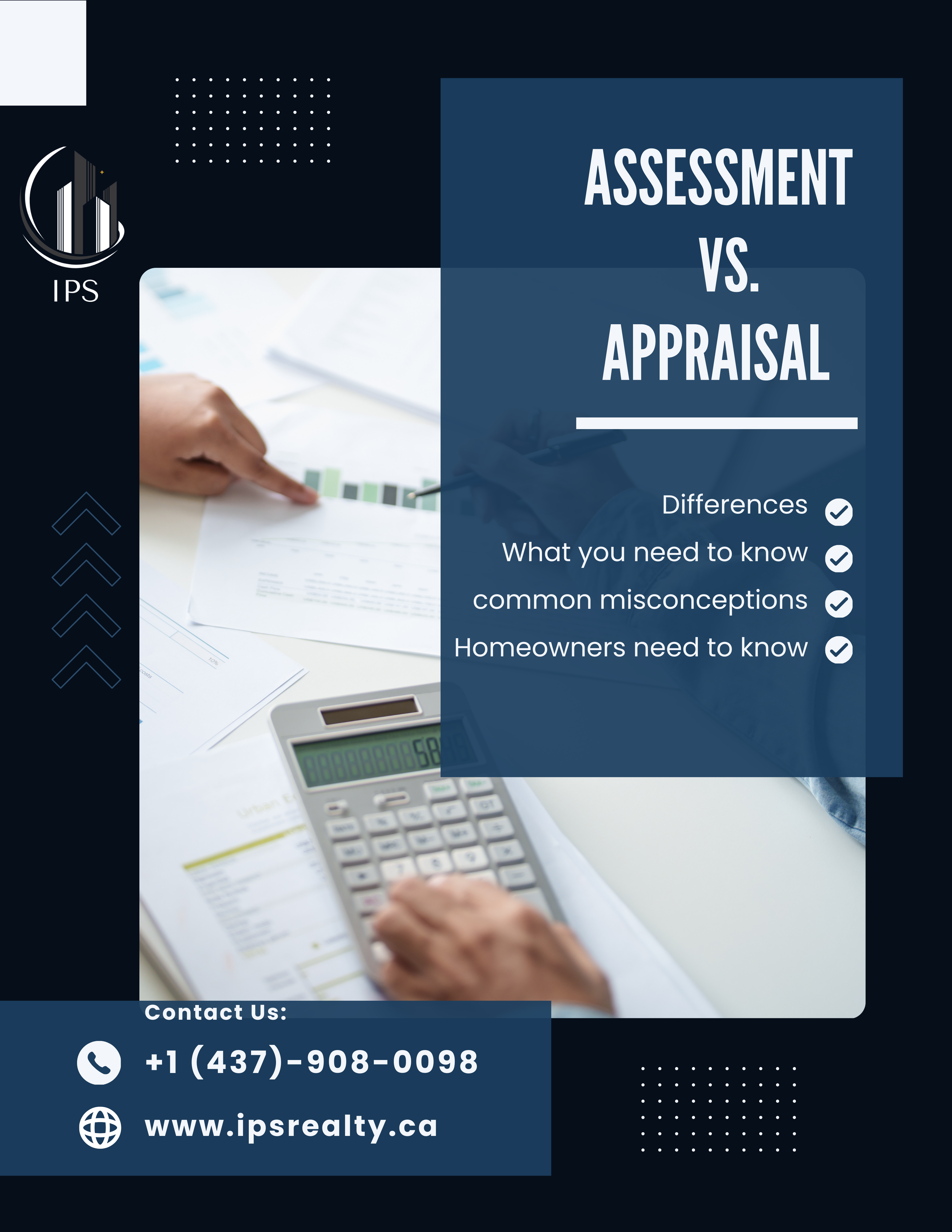
Understanding the differences between property tax assessments and professional appraisals is essential for homeowners, as these valuations serve distinct purposes and can lead to misconceptions. Here’s what you need to know:
Key Differences Between Tax Assessment and Appraisal
Purpose
- Tax Assessments: These are conducted by local government entities to determine the taxable value of a property. These valuations are primarily used to calculate property taxes that fund public services like schools and infrastructure[1][2][3].
- Appraisals: Performed by licensed professionals to estimate a property’s fair market value for various purposes, including sales, mortgage lending, estate planning, and legal disputes[1][4][2].
Methodology
- Tax Assessment: Often relies on automated valuation models, statistical averages, and periodic reviews. They may not account for recent property improvements or market changes, leading to discrepancies between assessed value and actual market value[1][2][5].
- Appraisal: This involves detailed inspections of the property, analysis of comparable sales, and reconciliation of data using approaches like cost analysis, sales comparison, or income evaluation. Appraisals provide a more accurate reflection of current market conditions[4][2].
Accuracy
- Tax Assessment: Can lag behind market trends due to reliance on older data or mass valuation techniques. As a result, assessed values may be lower or higher than the true market value[1][6][5].
- Appraisal: Tends to be more precise because it considers property-specific factors such as location, condition, size, and recent comparable sales[4][7].
Frequency
- Tax Assessment: This is conducted periodically (e.g., annually or biannually) by government assessors[2].
- Appraisal: This is conducted on demand for specific needs like property transactions or refinancing[4][2].
Common Misconceptions
Misconception 1: Assessed Value Equals Market Value
Reality: Assessed values are not always reflective of market value. They are calculated for taxation purposes and may not account for unique property features or recent improvements[6][5].
Misconception 2: Higher Appraisal Means Higher Selling Price
Reality: While appraisals provide an estimate of fair market value, actual selling prices depend on buyer demand, negotiation skills, and current market conditions[7].
Misconception 3: Tax Assessments Cannot Be Challenged
Reality: Tax assessments can be appealed if homeowners believe their property has been over-assessed. Providing adequate data can lead to revisions by local authorities[5].
Practical Implications for Homeowners
- Use tax assessments to understand your annual property tax obligations, but don’t rely on them for determining your home’s market value.
- Obtain a professional appraisal when selling your home, refinancing a mortgage, or resolving disputes to ensure an accurate valuation tailored to your specific needs.
- If discrepancies arise between assessed and appraised values, consult with real estate professionals or appeal the assessment if necessary.
By understanding these differences, homeowners can make informed decisions about their property’s value and associated financial responsibilities.
- https://whitsitt.com/tax-assessments-vs-appraisals/
- https://www.har.com/ri/3338/the-difference-between-property-tax-assessments-and-appraisals
- https://loanscanada.ca/mortgage/market-value/
- https://www.tdjlaw.com/blog/understanding-the-property-appraisal-and-assessment-process-in-ontario
- https://www.urbanupgrade.ca/blog/79195/top-property-tax-assessment-myths
- https://redrivergroup.ca/resources/appraisal-myths/
- https://elliottappraisals.ca/2023/10/20/debunking-5-myths-regarding-property-appraisals/


